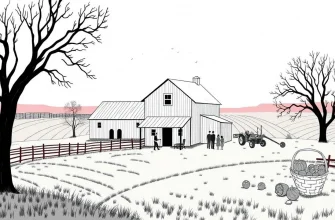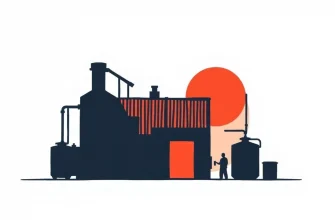Union dramas often delve into the heart of human struggle, showcasing the power of collective action and the fight for workers' rights. These films not only entertain but also educate viewers on the historical and ongoing battles for fair labor practices. Here's a curated list of 10 compelling union dramas that capture the essence of solidarity, resilience, and the quest for justice.

Salt of the Earth (1954)
Description: This film, blacklisted during the McCarthy era, portrays Mexican-American miners in New Mexico who go on strike for better conditions, with their wives stepping up when the men are barred from picketing.
Fact: It was directed by Herbert J. Biberman, one of the Hollywood Ten, and was banned in the U.S. for its pro-union stance.
 Watch Now
Watch Now 
The Pajama Game (1957)
Description: A musical comedy-drama about workers in a pajama factory who go on strike for a 7.5-cent raise, showcasing the lighter side of union struggles.
Fact: The film was adapted from a successful Broadway musical and features the song "Hey There."
 Watch Now
Watch Now 
The Molly Maguires (1970)
Description: Set in the late 19th century, this film explores the secret society of Irish coal miners known as the Molly Maguires, who fight against oppressive working conditions in Pennsylvania.
Fact: The film was shot on location in the coal mining regions of Pennsylvania, providing an authentic backdrop to the story.
 Watch Now
Watch Now 
Blue Collar (1978)
Description: Three auto workers in Detroit become disillusioned with their union and decide to rob it, only to uncover corruption and face the consequences of their actions.
Fact: The film was one of the first to explore the internal conflicts within unions and the disillusionment of the working class.
 Watch Now
Watch Now 
The Killing Floor (1984)
Description: This film follows an African-American worker in Chicago's meatpacking industry during World War I, highlighting racial tensions and union organizing.
Fact: It was one of the first films to explore the intersection of race and labor in the early 20th century.
 Watch Now
Watch Now 
The Organizer (1963)
Description: Set in Turin, Italy, this film depicts the efforts of a professor to organize workers in a textile factory, leading to a strike for better working conditions.
Fact: The film was directed by Mario Monicelli, known for his satirical and comedic takes on Italian society.
 30 Days Free
30 Days Free 
Harlan County, USA (1976)
Description: A documentary that captures the coal miners' strike in Harlan County, Kentucky, showing the raw reality of union struggles and the fight for better wages and safety.
Fact: The film won the Academy Award for Best Documentary Feature in
 30 Days Free
30 Days Free 
Norma Rae (1979)
Description: This film tells the story of Norma Rae Webster, a factory worker in the South who becomes involved in the labor union movement. It's a poignant portrayal of one woman's fight against exploitation and for workers' rights.
Fact: Sally Field won an Academy Award for Best Actress for her role as Norma Rae. The film was inspired by the real-life story of Crystal Lee Sutton.
 30 Days Free
30 Days Free 
Matewan (1987)
Description: This film recounts the events leading up to the Battle of Matewan, where coal miners, both black and white, band together against the coal company's attempts to break their union.
Fact: John Sayles, the director, also wrote the screenplay, which was based on real historical events.
 30 Days Free
30 Days Free 
Bread and Roses (2000)
Description: Ken Loach's film focuses on the Justice for Janitors campaign in Los Angeles, highlighting the plight of immigrant workers and their struggle for better wages and conditions.
Fact: The film was shot with many non-professional actors, including real-life janitors, to bring authenticity to the story.
 30 Days Free
30 Days Free 








